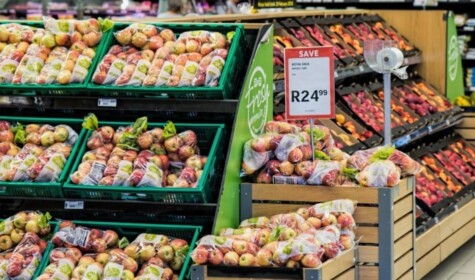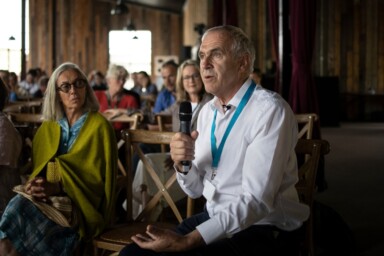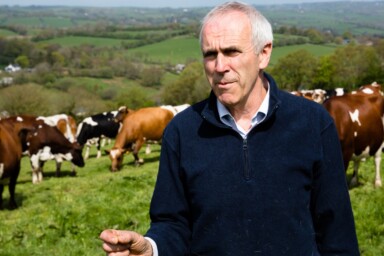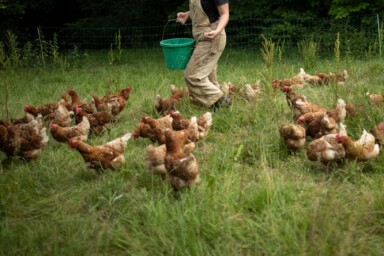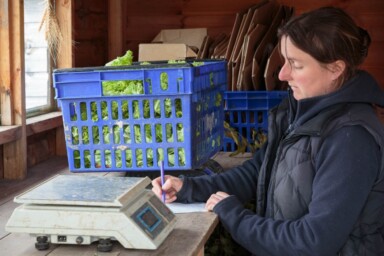How much should food cost? Should we pay more? Isn’t affordable food the right of everyone and a necessity for the poor? Is sustainable food affordable for the majority? What is the true cost of food?
These are the questions which more and more people are rightly asking.
Our current food pricing system is dishonest because the prices we pay in the shops fail to reflect the impact of the particular farming system, positive or negative, on the environment and public health.
We’ve been focusing on this ever since the launch of the Sustainable Food Trust back in 2011, when Prince Charles gave a speech at Georgetown University highlighting the perverse incentives which made unsustainable farming more profitable than its ecological counterpart. We hosted a conference in 2013 called The True Cost of Food and our Board member Christy Brown coined the term ‘True Cost Accounting’. My colleague, Richard Young, researched and published a report on The Hidden Costs of UK Food in 2017, the headline of which was that for every pound we spend on food there is another hidden pound split between damage to the environment, depletion of natural capital and damage to public health.
There is an absolute imperative to correct these distortions, because until we do, farming in ways which are damaging to the environment and public health will continue to pay better than farming in a way that is regenerative and works in harmony with nature. Beyond the farm gate and on the supermarket shelf, the cheapest food is causing the most damage, whereas the ecologically beneficial alternative which is good for you and the planet, looks expensive and is often out of reach for low income groups.
Can we address this? Yes, we can! How can we correct the distortions? We need to adopt a carrot and stick approach. The stick is the application of the polluter pays principle. This could take the form of environmental taxes or other forms of regulation, ensuring that food producers are responsible for the negative impacts of any practices or inputs they use.
The carrot takes the form of redirected farm subsidies, but I am not sure even now that the Government truly understands the need to ensure that the new incentives in the form of ELMS and their equivalents in the devolved nations need to be sufficiently financially attractive to ensure that the majority of farmers switch to environmentally friendly farming systems. I just read this week that recent analysis suggests there will not be enough money in the new Defra scheme to make this happen.
There are two other important mechanisms which will drive the change that is needed. The first is the investment community, in the form of payment for soil carbon stewardship or biodiversity or through investment in companies which are doing the right thing. To achieve this, we need to be able to measure the impact of different farming systems which is what our Global Farm Metric is all about.
The last mechanism is harnessing the power of the informed consumer to drive change through food purchasing. To do this we need a labelling system which accurately reflects the environmental and health sustainability of each product we buy in the shops.
At the moment, this doesn’t exist, but a new initiative called CLEAR – the Consortium for Labelling for the Environment, Animal Welfare and Regenerative Farming – is a collaboration which includes more than 30 food and farming organisations. They are moving this in the right direction by advocating for method of production labelling as a foundation stone for change. We are working closely with this group as we believe this should be the starting point, and in the near future we should be looking to introduce labelling on food products based on common metrics which gives consumers a clear understanding of the impact on nature, climate, health and wellbeing.
Finally, the wider impact on food prices of bringing in such mechanisms cannot be ignored. Honest food pricing may indeed mean that prices go up on some products or that the ultra-cheap foods, kept to artificially low prices, cease to exist. How will this impact those on low incomes? We are of the firm belief that you cannot truly transition to a sustainable food system without also addressing poverty and inequality in society. In tandem with these changes, Government must therefore also commit to ensuring everybody has access to healthy and sustainable food.
Will all this happen? Let’s hope so, because if it doesn’t we are in for some dark times ahead. But if it does, it might just be possible to ensure that our children inherit a liveable planet.
